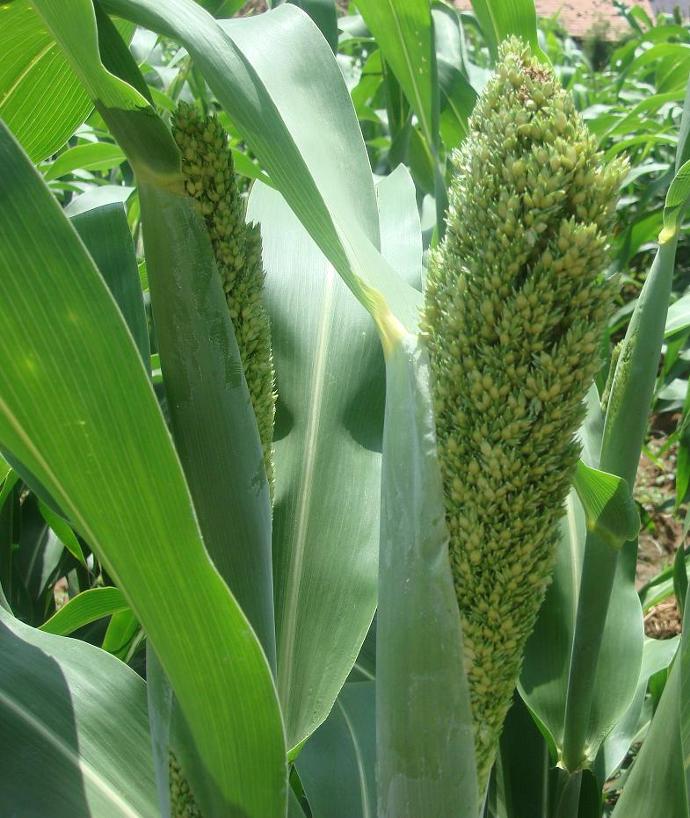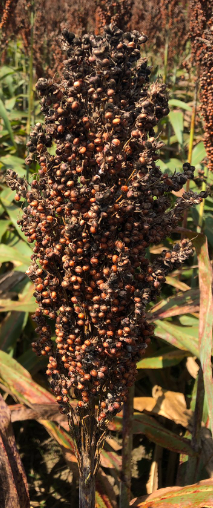Sorghum Plant
Sorghum (Sorghum bicolor), a fast-growing grass up to 12 ft, thrives in loamy soil, requires moderate moisture, and is edible but not medicinal.

Habit
Grass
Height
2-4 m
Growth
Fast
Soil
Well-drained, sandy
Shade
Full
Moisture
Moderate
Edible
Yes
Medicinal
No
Origin
Africa, Asia
Climatic Condition
Tropical, Subtropical
Temperature (°)
25-35°C
Humidity (%)
60-80%
Potting media
Loamy, compost
Fertilizers
Organic, balanced NPK
Watering
Regular
Plant Weight
1-3 kg
Flowering Time
Summer
Soil Ph level
6.0 - 7.5
Water Ph level
6.5 - 7.0
Soil EC
1-2 dS/m
Yield Per Plant
Grain, forage
NPK ratio
60:30:30
life Span
Annual
Health Benefits
Forage, grain
Suggested Grow Media or Potting Mix ?
50% peat moss, 25% sand, 25% compost
Suggested Fertigation/Fertilizers
Fertilize every 2-3 weeks with balanced liquid fertilizer.
Common Diseases and Remedies
Anthracnose, Grain Mold, Rust, Leaf Blight, Downy Mildew.
Dark streaks on leaves and stems, Fungal growth on grains, discoloration, Orange or reddish pustules on leaves, Large brown or gray lesions on leaves, White fungal growth on the underside of leaves.
Fungicides with chlorothalonil, Fungicides with tebuconazole, Fungicides with propiconazole, Fungicides with azoxystrobin, Fungicides with mancozeb.
HEALTH BENEFITS
- Improves digestive health:
The high fiber content in sorghum aids digestion, prevents constipation, and may help regulate blood sugar levels.
- Supports bone health:
Sorghum contains calcium and magnesium, which are important for building and maintaining strong bones.
- May lower disease risk:
The antioxidants in sorghum may help protect against certain diseases, such as cancer, diabetes, and heart disease.
- Gluten-free:
Sorghum is naturally gluten-free, making it a suitable alternative for individuals with celiac disease or gluten intolerance.
- Supports weight management:
The high fiber content in sorghum promotes satiety and may help with weight management.

